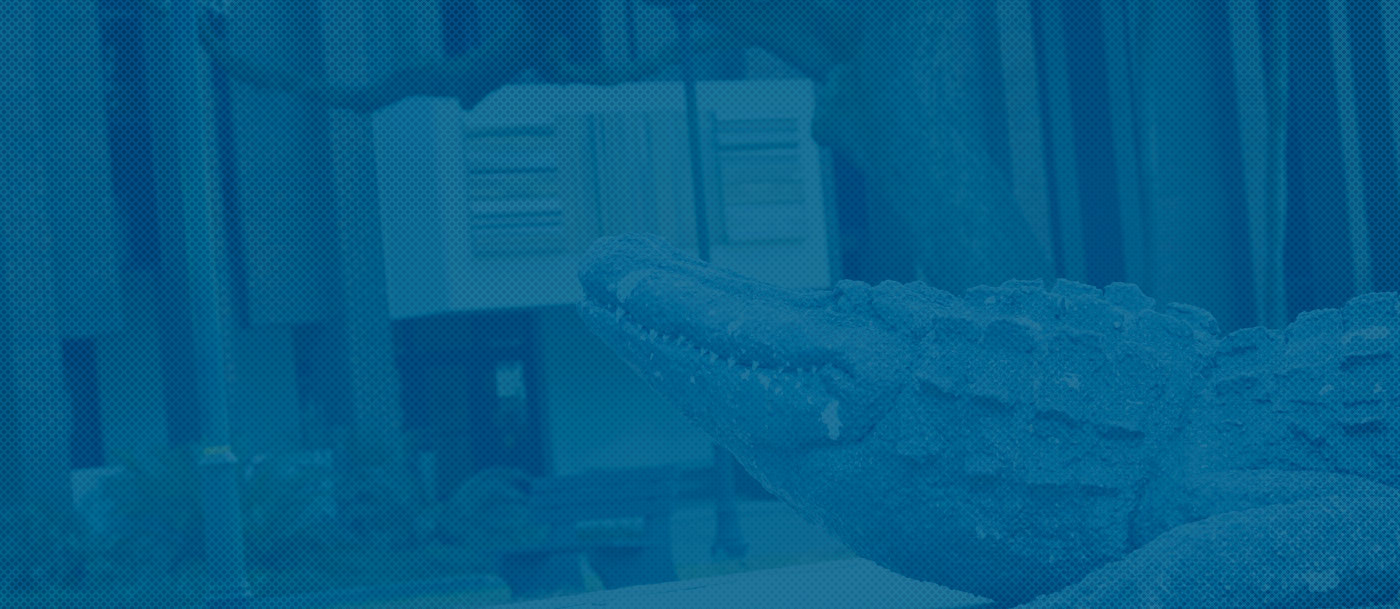 UF Center for Latin American Studies
UF Center for Latin American Studies

January 13, 2023
This article was originally featured in the Fall 2022 Latinamericanist newsletter.
by Daniel Fernández-Guevara
On December 18, a group of staff and collaborators from the Latin American & Caribbean Collection (LACC) at UF’s Smathers Library handed out pink bookmarks to attendees for this year’s posada celebrations at the Farmworkers’ Association of Florida (FWAF) Apopka office.1 The bookmark offered a QR code to connect attendees to a video produced by UF librarians, historians, and activists, compelling viewers to “Tell us your story.”2 The pilot video for the campaign depicts the family story of LACC librarian Margarita Vargas-Betancourt. In a heartwarming scene with her son Roberto, Margarita insists on sharing her family’s past because “to know who you are and where you are going, it’s important to know where you came from, and we come from Mexico.” The promoters of this project hope to inspire farmworker communities to broaden their collaboration with the libraries, and share their own stories in oral history interviews.
In August 2022, the FWAF, the Rural Women’s Health Project (RWHP), UF George A. Smathers Libraries, and the University of Miami (UM) Libraries obtained a planning grant to investigate best practices to record the stories of Florida farmworkers for historical archives. The “Archiving Farmworkers’ Histories” project, made possible through an Institute of Museum and Library Services (IMLS) National Leadership Grant, aims to create safe, cooperative spaces to archive and access oral histories, bringing together partners from community-based organizations, library specialists, graduate students, farmworkers, extension officers, and others to make archival practices more equitable.
The project team consists of UF and UM library specialists, a historian, one extension officer, and a PhD student in agricultural education. In addition to their community partners, the Farmworkers Project has five consultant experts: three in community-driven archiving, and two from other community-based organizations that work with migrants. The project aims not only to bolster the trust between the libraries and the communities they serve, but also to survey their archival needs and to design archival and access strategies to ensure the safety of these communities. Among the methodologies employed, the Farmworkers Project sponsors and participates in FWAF and RWHP community events alongside their leaders, conducting and sharing oral histories at community events and through keepsakes.
A small portion of the IMLS funds helped FWAF provide food for their posada event. Posada attendees included FWAF members and their families as well as several members of the UF team, including Dr. Vargas-Betancourt, Associate University Librarian of Agricultural Sciences & Digital Scholarship Susan Stapleton, PhD student and Extension Fellow Claudia Diaz Carrasco, and Project Coordinator and recent-UF PhD history graduate Daniel Fernández-Guevara. Members of the UF team have also volunteered at a vaccination drive held in Ocala organized by the RWHP. The goals of these collaborations are to build trust between minoritized communities and the libraries and to make the constituencies of these underserved groups visible in library collections and in online media.
The project is part of the Latin American and Caribbean Diaspora Initiative, which seeks to document the histories of migrants to Florida from Latin America and the Caribbean at UF’s LACC. The initiative includes two online exhibits: The Cuban American Dream and The Haitian American Dream. Both discuss universal aspects of immigration while highlighting the specificity of Cuban and Haitian stories. In 2020, the initiative continued with an effort to document the impact of COVID-19 on Florida farmworkers. The LACC collected 32.1 gigabytes of digital content and now looks to do the same with the IMLS grant.
For the UF team, the success of the Farmworkers’ project is measured in reciprocity; it’s as much about learning from the communities as it is about helping FWAF and RWHP archive and preserve their documents. During a visit to RWHP headquarters, Dr. Fernández-Guevara and Dr. Vargas-Betancourt met with its director, Robin Lewy, who donated a sample of the fotonovelas the organization used for community education. In Latin America, fotonovelas are a traditional print medium similar in format to comic books or graphic novels, but that illustrate a story. Fotonovelas educate effectively because they originate from the traditional way the people of Latin America and the Caribbean transmit knowledge through storytelling. The Farmworkers’ Project hopes to inspire other large institutions to augment their efforts to connect to the communities they serve. ◆
1 A posada is a traditional Christmas celebration in Mexico.
2 You can see the video at: http://youtu.be/0878LDMwyfk
You can read more from the Fall 2022 Latinamericanist below.